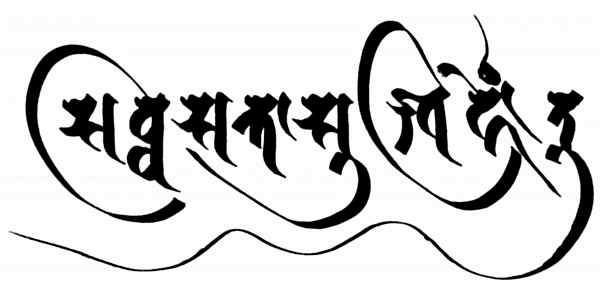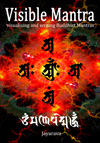This chant in Pāli - sabbe sattā sukhi hontu - is chanted by Theravadin Buddhists, but is also more widely popular. It means "may all beings be happy". It is an expression of the universal compassion that Buddhists aspire to.
See also sabbe satta in formal siddhaṃ and a variety of other scripts (Tibetan, Devanāgarī, Sinhala)

Transliteration
sa bbe sa ttā su khi hoṃ tu
sabbe sattā sukhi hontu
Notes
see also May all beings be happy which has a plain version of this phrase.
In this script a nasal which preceeds a consonant is written as a anusvāra on the preceeding vowel: so we write hoṃ tu, rather than ho ntu. This makes for a tidier and more efficient hand. When the anusvāra preceeds a consonant, one assumes that it is the nasal which is the same articulation: so aṃka would be aṅka, and aṃṭa = aṇṭa, aṃca = añca.
Sectarian Buddhists who still use terms like hīnayāna or maintain that Theravadin Buddhists are not interested in benefitting all beings should reflect on this phrase which is quintessentially Theravadin.


